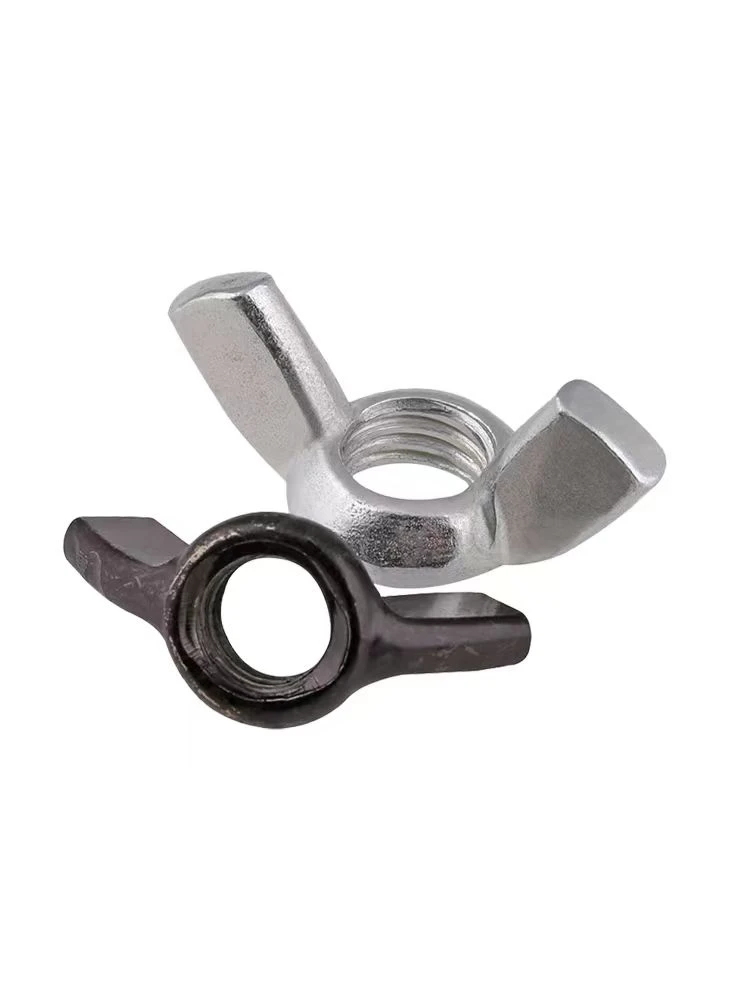

Brass Flange Nut Applications and Benefits in Industrial Settings
Nov . 10, 2024 03:16 Back to list
Brass Flange Nut Applications and Benefits in Industrial Settings
Understanding Brass Flange Nuts A Comprehensive Overview
Brass flange nuts are essential components in the world of fasteners, offering specific benefits that make them suitable for various industrial and domestic applications. This article provides a detailed examination of brass flange nuts, including their characteristics, advantages, applications, and maintenance.
What is a Brass Flange Nut?
A brass flange nut is a type of fastener made from brass, which is an alloy primarily composed of copper and zinc. The defining feature of a flange nut is its built-in flange, which acts as a wider surface to distribute the load when the nut is tightened. This design minimizes the risk of material deformation and enhances grip by providing a larger bearing surface.
Brass flange nuts come in various sizes and thread configurations, typically conforming to standard metric or imperial measurements. They are often hexagonal in shape, allowing for easy installation and removal with a wrench or socket.
Advantages of Brass Flange Nuts
1. Corrosion Resistance One of the most significant advantages of brass is its excellent resistance to corrosion. Brass flange nuts can withstand exposure to moisture and various environmental conditions without rusting, making them ideal for outdoor and marine applications.
2. Durability Brass is a durable material, providing robust construction that can handle stress and strain. This solidity is critical in applications where fasteners are subject to vibrations or heavy loads.
3. Excellent Electrical Conductivity Brass is an excellent conductor of electricity, making brass flange nuts suitable for electrical applications where conductivity is paramount.
4. Aesthetic Appeal Brass has a natural shine and can be polished to enhance its appearance. This aesthetic quality makes brass flange nuts a preferred choice in applications where visibility is a concern, such as in decorative fixtures.
5. Ease of Use The larger surface area provided by the flange allows for easier handling and manipulation during installation. This makes it simpler to tighten the nut securely without damaging the host material.
Applications of Brass Flange Nuts
Brass flange nuts are versatile components used in multiple sectors, including
brass flange nut

- Construction Often utilized in structural applications, these nuts secure wooden beams, metal frames, and other constructions where stability is crucial.
- Automotive Industry Within vehicles, brass flange nuts secure components such as exhaust systems and engine parts, where noise and vibration dampening provided by the flange can enhance overall performance.
- Electrical Engineering Due to their conductive properties, brass flange nuts are commonly used to secure electrical connections and components in various devices and machinery.
- Marine Applications Their resistance to corrosion makes brass flange nuts ideal for use in boats, ships, and other marine equipment, ensuring long-term reliability despite harsh environments.
- Home Appliances Many household items utilize brass flange nuts, where their durable and non-corrosive attributes help maintain the integrity of appliances in use.
Maintenance of Brass Flange Nuts
To ensure the longevity and effectiveness of brass flange nuts, regular maintenance is essential. Here are a few tips
1. Regular Inspection Periodically check for any signs of wear, corrosion, or loosening. Addressing small issues early can prevent more extensive damage.
2. Cleaning Clean the nuts occasionally to remove grime and dirt buildup. A soft cloth, along with mild soap and water, ensures that the nuts maintain their appearance and function.
3. Proper Storage Store brass flange nuts in a dry environment to prevent moisture accumulation, which could lead to tarnishing or corrosion over time.
4. Avoid Over-tightening While it may be tempting to tighten nuts excessively, over-tightening can cause damage to both the nut and the material it secures. Following manufacturer guidelines ensures optimal performance without compromising integrity.
Conclusion
Brass flange nuts are indispensable in the world of fasteners, providing strength, durability, and aesthetic appeal. Their resistance to corrosion and ease of use make them a favorite in various applications, from construction to automotive and marine industries. Understanding their characteristics, advantages, applications, and maintenance can aid in selecting the right fastener for your project, ensuring reliability and performance for years to come.
Latest news
-
High-Strength Hot Dip Galvanized Bolts - Hebei Longze | Corrosion Resistance, Customization
NewsJul.30,2025
-
Hot Dip Galvanized Bolts-Hebei Longze|Corrosion Resistance&High Strength
NewsJul.30,2025
-
High-Strength Hot-Dip Galvanized Bolts-Hebei Longze|Corrosion Resistance&High Strength
NewsJul.30,2025
-
Hot Dip Galvanized Bolts-Hebei Longze|Corrosion Resistance&High Strength
NewsJul.30,2025
-
Hot Dip Galvanized Bolts - Hebei Longze | Corrosion Resistance, High Strength
NewsJul.30,2025
-
High-Strength Hot Dip Galvanized Bolts-Hebei Longze|Corrosion Resistance, Grade 8.8
NewsJul.30,2025

